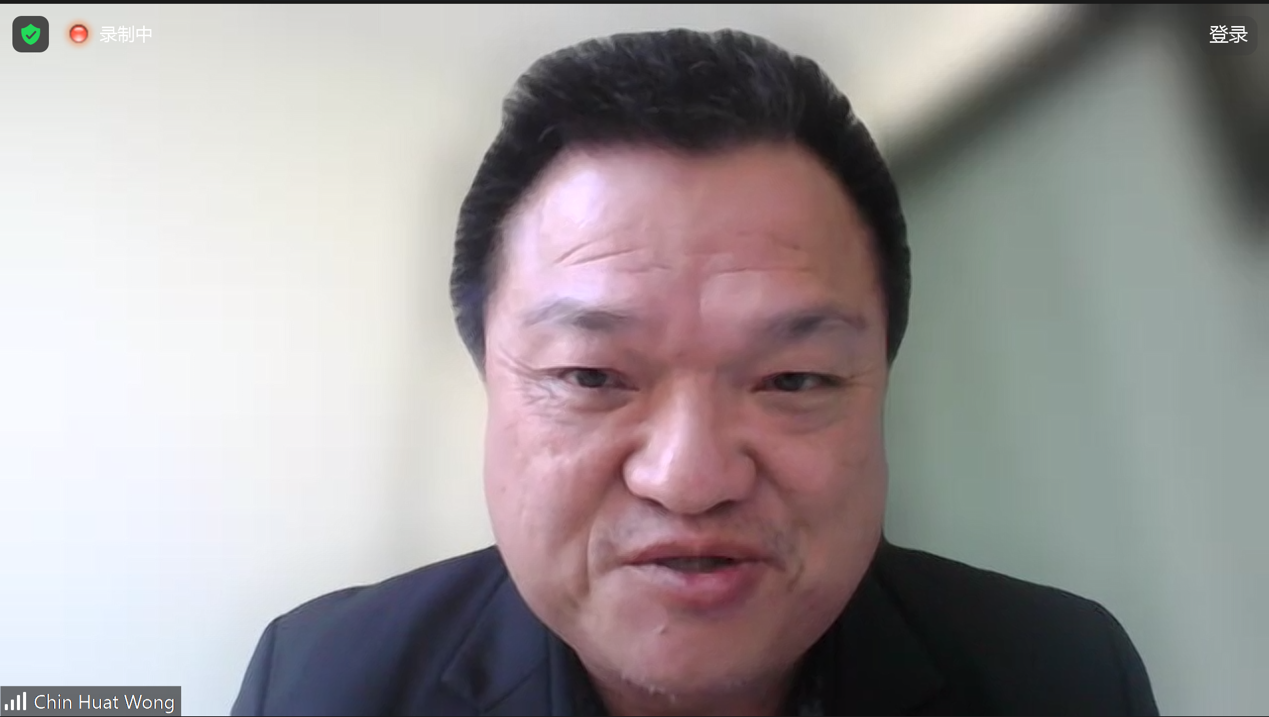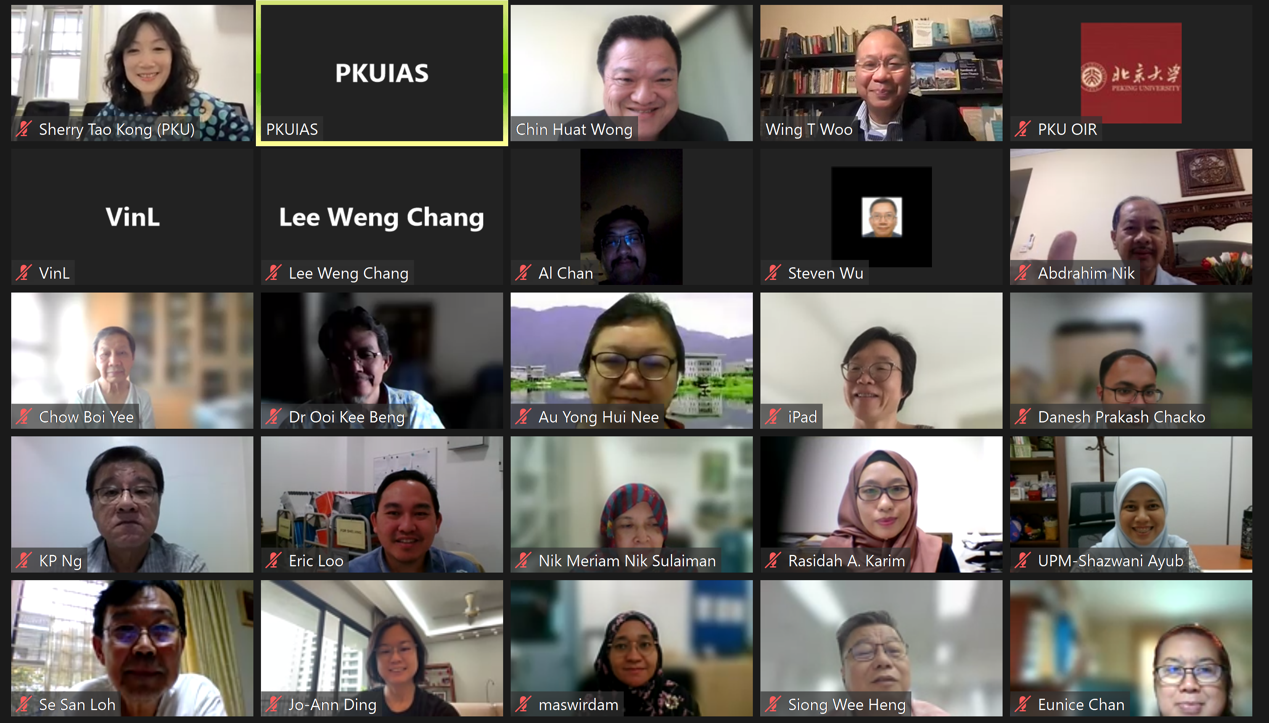The 17th lecture of the "Adventus Amicorum" series, hosted by the Institute of Area Studies, Peking University (PKUIAS), was held online on December 28, 2023. Prof. Woo Wing Thye and Prof. Wong Chin Huat respectively gave online presentations in California, the US, and Kuala Lumpur, Malaysia. The theme of the lecture was "Malaysia in the Middle-Income Trap: The Key Institutional Reforms to Unleash Growth, and the Barriers to their Adoption." The forum was moderated by Kong Tao, a senior research fellow at the Institute of Digital Finance and an associate research fellow at PKU's Institute of Social Science Surveys. PhD students from several departments of PKU and more than 80 scholars from Malaysia and other countries participated in the forum.

Keynote speech by Woo Wing Thye
At the beginning of the lecture, Prof. Woo Wing Thye spoke on the keys to institutional reform in Malaysia and the obstacles to its implementation. He reviewed the core conclusions of the lecture a week earlier and highlighted the large presence and influence of State-owned enterprises and government-linked companies in the economy. He also made a number of reform proposals. First, the government-linked company (GLC) sector needed to be reformed to improve its efficiency and transparency in order to reduce unnecessary government intervention. Second, there was a need to support the growth of micro-, small- and medium-sized enterprises (MSMEs) through the adoption of modern technology to promote economic diversification and innovation. Third, there was a need to update policy instruments to achieve the objectives of the New Economic Policy (NEP) and ensure economic equity and sustainability. In addition, he suggested that decentralizing the administrative and budgetary structure, increasing government accountability and focusing on the quality of education rather than quantity would provide a solid foundation for reforming Malaysia’s economic and political system and contribute to greater social well-being and sustained growth.

Keynote speech by Wong Chin Huat
Wong Chin Huat then discussed how to promote Malaysia’s economic development through political structural reform. He began with an in-depth analysis of the shortcomings of the then-current political and economic incentive structure, and then proposed political reforms in five major areas: electoral system reform, parliamentary reform, political financing reform, prosecutorial reform, and decentralization. The objectives of these reforms would be to stimulate political competition, increase the readability of political issues, reduce the propensity for corruption, and end selective prosecution or exoneration, while improving government responsiveness and accountability. Additionally, he placed special emphasis on the important topics of education, the environment, and employment, including an in-depth study of foreign labor dependency and technology-induced unemployment. He emphasized the urgent need for an open-minded political elite to drive these necessary reforms for economic and social well-being.

A group photo of the participants.
In the concluding session of the forum, Kong Tao emphasized the decentralization and centralization of political power, as well as governance, encompassing policies, accountability, and responsiveness. Per her, these aspects were interconnected and had an impact on social well-being. The critical analysis provided by the two speakers regarding the middle-income trap facilitated a deeper understanding of this intricate issue among the participants, she said. In addition, she expressed her hope that the seminar would lay a solid foundation for more in-depth discussions and exchanges between scholars of the two countries in the future.
Guest Speaker Introduction:
1. Woo Wing Thye:Distinguished Professor Emeritus, University of California, Davis;Visiting Professor, University of Malaya, Kuala Lumpur;Research Professor, Sunway University, Kuala Lumpur
2. Wong Chin Huat:Professor, Sunway University, Kuala Lumpur
Presentation 1
Presentation 2
Q&A


